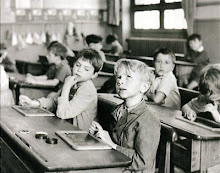As I was doing this assignment, I happened to look at Social Dilemma, and I try to connect to the Unit of Cool. I was talking about what social dilemma is with my brother, and he told me people who go against the normal, trying to be different from the majority, usually have to two outcomes, you win with pride or you lose badly. Whether it is true or not, or whatever that means, I think it is worth to give a shot taking risk.
Intro: Almost everybody have thought of living in a misery without meaning, and that feeling is so dry that we barely see the shape of our own lives. Most of us visualize this feeling of insignificance as a hole in our lives, a feeling of emptiness that is never be able to fill but to cover as much as we can. We try to perform as what Erving Goffman claimed, that we put ourselves out there on stage, and be certain characters that will receive some sort of response from the others that we desire to get with the same manner that we perform them to the audience. Usually due to politeness of human beings, we are fortunate enough to receive a sense of satisfaction from the others if we perform well enough to signify who we are. Because we are all practice to be a great performer to get these intangible attention, we create a competition over coolness for our own selfish interests. As everybody is trying to fish for coolness to get a sense of importance in life to fulfil the imaginary hole of emptiness and meaninglessness, we risk the chance from overfishing to lead ourselves to fall into the "social trap", resulting in a reflection of human foolishness.
Argument #1: Merchants of Cool, because we all are hunger for attention to be cool, many teenagers result to be the puppets of large corporations, ads, and celebrities. Often times, these attention are intangible, and the sense of coolness does not last long to be a significant part of most people's lives, impermanent, short term benefits.
Argument #2: Buddhism's definition of emptiness. How people misunderstood the meaning of emptiness, and start to be cool in their way to try to fulfill that.
Argument #3: Interviews. The way people understand cool and what is cool reveals how most people do not see the big picture of their actions. Egoism, knock off others, did not realize the fact the cool is from uncool. It's all combined as a whole.
Argument #4: Prisoners' Dilemma. Cooperation vs. Non-cooperation. "Two Prisoners who are separately given the choice between testifying against the other (non-cooperation) or keeping silent (cooperation). The pay-offs are such that each of them is better off testifying against the other but if they both pursue this strategy they are both worse off than by remaining silent."
Argument #5: Common Good, Free-riders, Public Good.Tragedy of the Commons. "As social dilemmas in society become more pressing there is an increasing need for policies." -less freedom, overfishing. Social Trap.
Alternative #1: Erving Goffman. Performing as the presentation of the self. Tattoos, permanent mark, long term benefits. Piercing.
Alternative #2: If public good is inexhaustible, why can't we be coole than the other? Aren't the government is trying to control us, to mak all of us to conform, and not fight over the others and contribute other than being free-riders?
Connection #1: Personal Experience.
Connection #2: An Article.
Significance: Less Freedom, more policies.
Conclusion: If we realized that coolness is something that we can all shared, like public good, then we won't try so hard to be different. (The example that I read online about it doesn't matter where you live right next to the river or far away, everybody receive the same amout of water) If we accept the fact that everything is connected and we are all the same after all, then we will live a more meaningful life than being a fool compete over something that is meaningless, and worsen our lives or the situation. (There is nothing wrong to be cool, but we went to the wrong directions.)

No comments:
Post a Comment